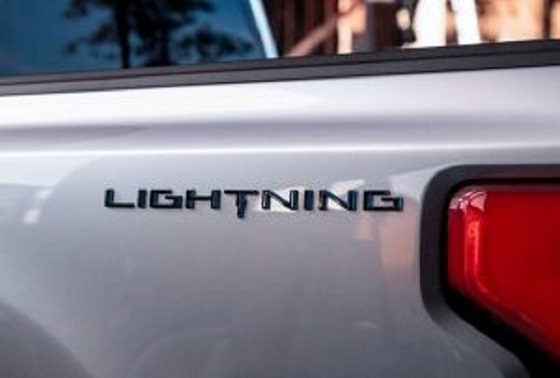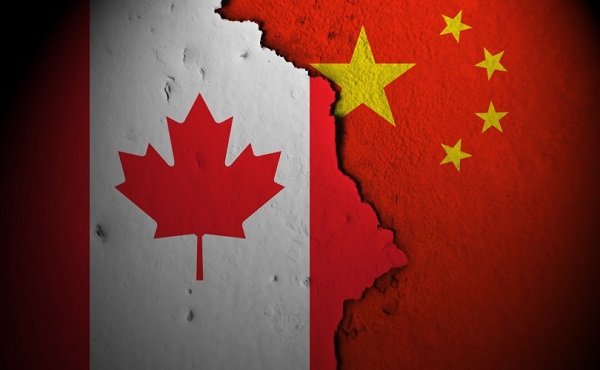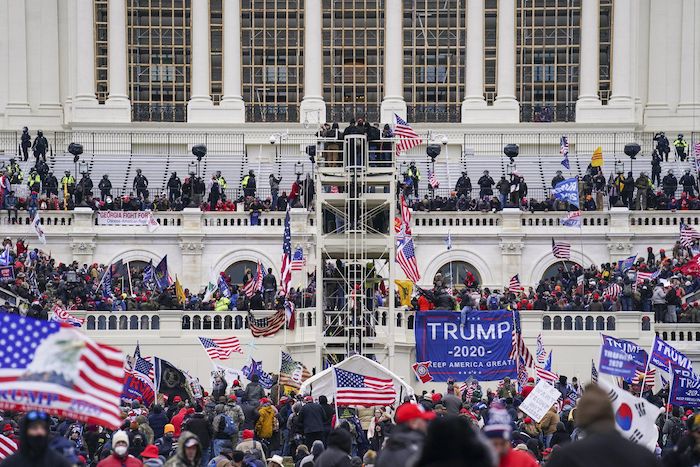Automotive
Big Auto Wants Your Data. Trump and Congress Aren’t Having It.


From the Daily Caller News Foundation
Congress is not going to allow Big Auto to sideline consumer privacy and safety while getting subsidized massively by the federal government.
That is because, in late September, by an overwhelming vote of 50 to 1, Chairman Brett Guthrie’s (R-KY) House Energy & Commerce Committee joined the Senate Commerce, Science, and Transportation Committee in passing the AM Radio for Every Vehicle Act.
This legislation is in response to some automakers removing AM radios from new model vehicles despite pleas from America’s public safety community not to do so.
Dear Readers:
As a nonprofit, we are dependent on the generosity of our readers.
Please consider making a small donation of any amount here.
Thank you!
“They’d rather force consumers to use their infotainment devices — which collect and sell their third-party data — than protect American lives,” Corey Lewandowski, President Trump’s 2016 campaign manager and senior adviser to his 2020 and 2024 campaigns, stated.
The entirety of America’s public safety community spanning the federal, state, and local levels, insists AM radio remaining in cars is critical for protecting the nation’s emergency alerting systems. These systems rely heavily upon AM radio, the only communication method that has stayed reliably accessible during many disasters such as the Sept.11 terrorist attack and major disasters like Hurricanes Katrina, Sandy, and most recently, Helene.
Brendan Carr, the current chairman of President Trump’s FCC, nominated by President Trump, has also endorsed the AM Radio for Every Vehicle Act. In a statement, Carr said that “millions of Americans depend on the value of AM radio and the local news that AM broadcasters offer in communities across the country.” He also recounted hearing firsthand stories of Hurricane Helene victims who “could only access lifesaving information in the days following the storm by tuning into their AM radios.”
AM radio also serves another purpose that the elites in Silicon Valley and Detroit often forget: it keeps rural and working-class America connected. Millions of people outside the big cities rely on AM for local news, farm reports, weather alerts, and even community events. For many small towns, AM stations are a lifeline—far more reliable than expensive streaming services or spotty cell coverage. Pulling it out of cars is yet another way of telling Middle America: “you don’t matter.”
Of course, no good idea in Washington is safe from special interests.
Despite the broad support within Congress, the administration, and throughout the public safety and first responder communities, the bill has faced a full-court press by the musicFIRST Coalition — a group backed by the Recording Industry of America — to tank the legislation unless it is tied to unrelated music royalty reform legislation. That’s cronyism politics at its worst—holding public safety hostage to squeeze out another payday.
However, now that the AM Radio for Every Vehicle Act has passed both committees by overwhelming margins, the only stop left for the legislation is the House and Senate Floor — meaning Speaker Mike Johnson (R-LA) and House Majority Leader John Thune (R-SD) must call it up for a roll call vote.
At the heart of this fight is more than just whether a radio dial stays in your dashboard. It’s about whether Americans can trust that their safety won’t be sacrificed for corporate profit.
It’s also about data privacy. Automakers and Big Tech are eager to funnel drivers into infotainment systems that monitor every move, harvest personal information, and sell it to the highest bidder. AM radio doesn’t spy on you. It doesn’t crash when the grid goes down. It doesn’t put profit ahead of people. It just works.
For the sake of both public safety and personal freedom, Congress should make sure it stays that way.
Ken Blackwell (@KenBlackwell) is an adviser to the Family Research Council and a chair at the America First Policy Institute. He is a former Mayor of Cincinnati, Ohio, Ohio Treasurer and Secretary of State, and U.S. Ambassador to the United Nations Human Rights Commission. He is also a former member of the Trump transition team.
Automotive
Canada’s EV subsidies are wracking up billions in losses for taxpayers, and not just in the auto industry

By Dan McTeague
To anyone who thought that the Liberals’ decision to postpone enforcement of their Electric Vehicle (EV) mandate by one year was part of a well-thought-out plan to get that disastrous program back on track, well, every day brings with it news that you were wrong. In fact, the whole project seems to be coming apart at the seams.
Here’s the latest crisis Mark Carney and his carnival of ideologues are having to deal with. Late last year, the Liberal party instituted a 100% tariff on Chinese-made EVs. The idea was to protect the Canadian EV industry from China dumping their vehicles into our country, at prices far lower than Canadian companies can afford due to their massive state subsidies. This has been a major problem in the EU, which is also attempting to force a transition to EVs.
But Beijing wasn’t going to take that lying down. Taking advantage of Western environmentalist sentiment is an important part of their economic plans — see, for instance, how they’ve cornered the global solar panel market, though the factories making them are powered by massive amounts of coal. So they retaliated with a 75% duty on Canadian canola seed and a 100% tariff on canola oil and canola meal.
This was big enough to really hurt Canadian farmers, and Ottawa was forced to respond with more than $300 million in new relief programs for canola producers. Even so, our farmers have warned that short-term relief from the government will do little if the tariffs are here for the long-term.
With pressure on Carney mounting, his Industry Minister Melanie Joly announced that the government was “looking at” dropping tariffs on Chinese EVs in the hope that China would ease off on their canola tariffs.
That may be good news for canola producers, but how about the automotive companies? They’ve grown increasingly unhappy with the EV mandate, as Canadian consumers have been slow to embrace them, and they’ve been confronted with the prospect of paying significant fines unless they raise prices on the gas-and-diesel driven vehicles which consumers actually want to make the EVs that they don’t really want more attractive.
That’s the context for Brian Kingston, CEO of the Canadian Vehicle Manufacturers’ Association, saying that dropping these tariffs “would be a disaster.”
“China has engaged in state-supported industrial policy to create massive overcapacity in EV production, and that plan is coming to fruition now,” Kingston said. “When you combine that with weak labour and environmental standards, Chinese manufacturers are not competing with Canadian, American, or Mexican manufacturers on a level playing field. We simply cannot allow those vehicles to be dumped into the Canadian market.”
The auto manufacturers Kingston represents are understandably upset about suddenly having to compete with underpriced Chinese EVs. After all, with the government forcing everyone to buy a product they really don’t want, are most people going to patriotically pay more for that product, or will they just grab whichever one is cheaper? I know which one I think is more likely.
And then there’s a related problem — the federal and provincial governments have “invested” somewhere in the neighborhood of $52.5 billion to make Canada a cog in the global EV supply chain. In response to Joly’s announcement, Ontario Premier Doug Ford, who has gone “all in” on EVs, wrote an open letter to the prime minister saying that canceling the tariffs would mean losing out on that “investment,” and put 157,000 Canadian automotive jobs at risk.
Now, it’s worth noting that automakers all over Ontario have already been cutting jobs while scaling back their EV pledges. So even with the tariffs, this “investment” hasn’t been paying out particularly well. Keeping them in place just to save Doug Ford’s bacon seems like the worst of all options.
But it seems to me that the key to untangling this whole mess has been the option I’ve been advocating from the beginning: repeal the EV mandate. That makes Canada less of a mark for China. It benefits the taxpayers by not incentivizing our provincial and federal governments to throw good money after bad, attempting to subsidize companies to protect a shrinking number of EV manufacturing jobs.
The heart of this trade war is an entirely artificial demand for EVs. Removing the mandate from the equation would lower the stakes.
In the end, the best policy is to trust Canadians to make their own decisions. Let the market decide.
Support Dan’s Work to Keep Canadian Energy Affordable!
Canadians for Affordable Energy is run by Dan McTeague, former MP and founder of Gas Wizard. We stand up and fight for more affordable energy.
Automotive
America’s Troubled EV Industry Loses Its Subsidized Advantage – Now What?


From the Daily Caller News Foundation
The Environmental Protection Agency announced Monday that it has assumed responsibility for what it says is the “Largest Lithium-Ion Battery Cleanup in Agency History” at the Moss Landing facility outside San Francisco.
Crews supervised by the EPA entered the facility this week to begin cleaning out the remains of the fire damaged batteries, which the agency says will be recycled at EPA-approved recycling facilities.
As has happened far too frequently, the retired batteries erupted spontaneously in January, leading authors of MIT’s weekly climate newsletter to speculate about what this latest conflagration would mean for the future of the electric vehicle and stationary battery storage industries going forward.
Dear Readers:
As a nonprofit, we are dependent on the generosity of our readers.
Please consider making a small donation of any amount here.
Thank you!
“With the growing number of electric vehicles and batteries for energy storage on the grid,” the authors wrote, “more high-profile fires have hit the news, like last year’s truck fire in LA, the spate of e-bike battery fires in New York City, or one at a French recycling plant last year.”
The parade of troubling incidents related to these batteries has continued throughout 2025. In June, for example, a large container ship called the Morning Midas, operated by Zodiac Maritime, sank into the Pacific Ocean after batteries in EVs it was carrying to Alaska spontaneously combusted, forcing the crew to abandon ship. A month later, U.S.-based shipper Matson announced it would no longer transport EV cargoes due to the obvious dangers involved. Three weeks later, Alaska Marine Lines put a similar policy in place.
All of these inconvenient news stories come at an already troubling time for the U.S. EV industry, given that its huge $7,500 per car federal subsidy expired at midnight, Sept. 30. That subsidy was enacted in the Orwellian-named Inflation Reduction Act of 2022 and subsequently repealed in the One Big Beautiful Bill Act signed into law by President Donald Trump on July 4 of this year.
Sales have spiked in the run-up to the subsidy expiration, to no one’s real surprise. But EV makers now face the troubling prospect of having to compete in the U.S. market absent that significant price advantage, leading many to anticipate a significant drop-off in sales.
Some carmakers have already begun to scale back operations. Stellantis announced the cancellation of a planned all-electric Dodge Ram pickup model on Sept.12, citing slowing demand for such trucks in a field already dominated by the Ford F-150 Lightning and the Tesla Cyber Truck. The fact that sales of those competing models are already coming in well below projections this year was another obvious motivating factor.
Ford, meanwhile, said in August it would delay the introduction of what it refers to as “next generation” updates to its Lightning pickup and full-sized electric van for two years due to the same challenging market conditions. “F-150 Lightning, America’s best-selling electric truck, and E-Transit continue to meet today’s customer needs,” the company said in what can only be described as an understatement.
Competitor GM announced it would take similar action on Sept. 4, saying it was suspending production of a pair of Cadillac SUVs – the mid-size Lyriq and the full-size Vistiq – at its assembly plant in Spring Hill, Tenn., effective in December. The company also said it would indefinitely delay the start of a second shift at an assembly plant near Kansas City.
Amid the frequent big fire events involving EV batteries and the industry’s fallout from the loss of a federal subsidy, it must be repeated here that the electric vehicle industry is not “new” or even a young one. It is in fact well over a century old, with the first electric cars introduced in the U.S. in the 1890s, during the same period when gas-powered cars started to come onto the market. In those early years, in fact, many experts insisted that electric cars would ultimately render gas-powered cars obsolete and become the dominant force in American transportation.
But makers of EVs then found themselves suffering from the same set of limitations that plague the industry well over a century later: Range anxiety, lack of infrastructure, and persistent unreliability.
The fact that an industry this old has still not solved for the same set of issues after so much time makes it reasonable to question whether it ever will.
David Blackmon is an energy writer and consultant based in Texas. He spent 40 years in the oil and gas business, where he specialized in public policy and communications.
-

 International2 days ago
International2 days agoHamas agrees to release hostages; demands further negotiations
-

 Health2 days ago
Health2 days agoDisabled man needs help as hospital continues to pressure him with assisted suicide
-

 International1 day ago
International1 day agoTrump says U.S. in ‘armed conflict’ with drug cartels in Caribbean
-

 Business13 hours ago
Business13 hours agoJobs Critic says NDP government lied to British Columbians and sold out Canadian workers in billion dollar Chinese ferries purchase
-

 Daily Caller2 days ago
Daily Caller2 days ago‘Special Day’: Trump Provides Big Update On Israeli Hostages
-

 Agriculture2 days ago
Agriculture2 days ago“We Made it”: Healthy Ostriches Still Alive in Canada
-

 Indigenous1 day ago
Indigenous1 day agoBloodvein First Nation blockade puts public land rights at risk
-

 Business2 days ago
Business2 days agoInquiry discloses Canada providing a reported $2.5 million in aid to Chinese universities







